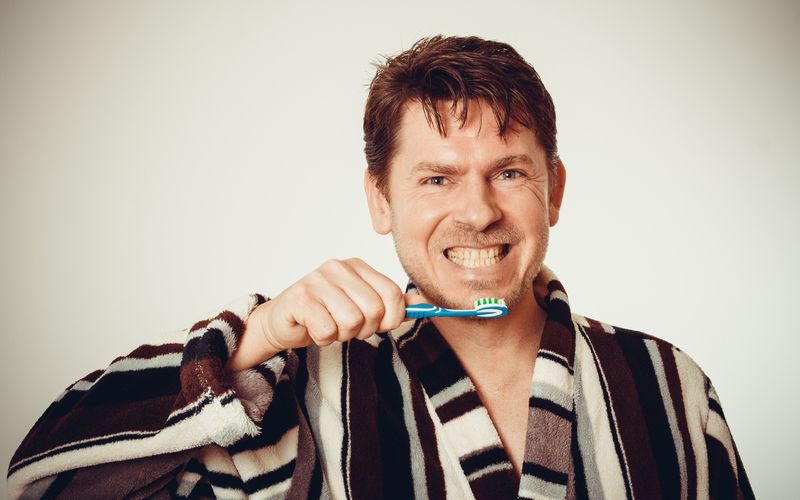Want to improve your oral health? Try Not Rinsing After You Brush

Brushing your teeth is one of the most important parts of your daily routine. In fact, if you didn’t brush your teeth you’d find yourself having a hard time eating, drinking, and talking. After all, that’s what your teeth help you do and when you don’t brush you suffer from decay and lose your teeth. Life without teeth is much more difficult. If you’re brushing twice a day, flossing once a day, and visiting the dentist twice a year then you’re on a great path toward exceptional oral health.
But there’s one more thing you can do that you might not know about. Typically, when people brush their teeth, they rinse the toothpaste from their mouth with water after brushing. This helps to eliminate the strong minty flavor that tends to linger with the foaming toothpaste. New studies suggest that rinsing might not be the best option.
Why shouldn’t I rinse after I brush?
The fluoride that is in toothpaste plays an important part in protecting your teeth. It helps to remineralize enamel and decreases the production of acid by plaque. Acid that breaks down tooth enamel and eats away at it is a byproduct of bacteria that feeds off of plaque. Fluoride helps to mitigate the decay.
While it is recommended that you brush for two minutes at a time, most people brush their teeth for less than a minute. This means that the fluoride in your toothpaste has less of an opportunity to work. By not rinsing your mouth you’re allowing that powerful fluoride to stay in your mouth and continue to work long after your brushed.
Here’s Why Some People Say to Rinse
Those who are against not rinsing after you brush say that ingesting any toothpaste could upset your stomach. They also argue that by not rinsing you’re retaining any harmful bacteria. While this might make sense at first glance, it doesn’t make sense in the long run because as people brush most continuously spit out large amounts of foam and toothpaste.
So what should you do?
Science seems to back up the arguments for not rinsing more than rinsing. Studies have shown that by not rinsing with water or limiting the amount of water used to rinse less cavities are formed.
The most important thing is to create an oral hygiene routine you can stick to. Find a toothbrush that works for you – manual and electric both get the job done well. Test out different flosses to see which ones would best work with your teeth and spacing. And find a toothpaste you like. Once you have these details figured out start by committing to brushing two minutes a day. After your routine is set up you can start to pay more attention to finer details like whether you rinse after brushing or not and if you do, the amount of water used. In the end, it’s all about protecting your teeth and ensuring you’re set up to have a healthy mouth for years to come.
